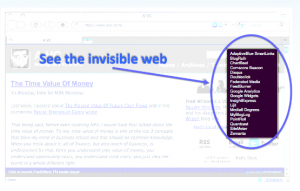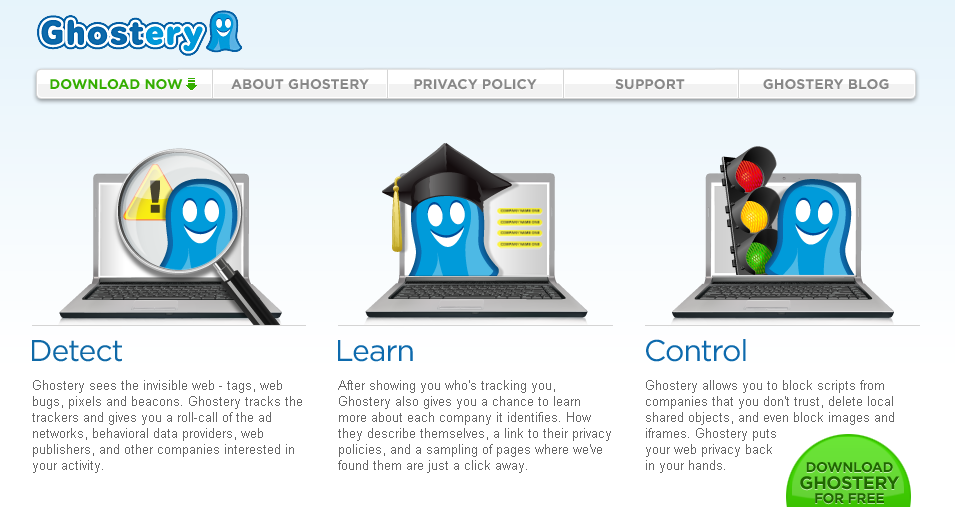Last week I attended the Unlike Us conference in lovely Amsterdam. The event, aimed at bringing together researchers, activists and artists concerned with Social Media Monopolies and their Alternatives, was covered pretty well by bloggers on site, as you can see here. Instead of repeating their work by blogging about the whole event, I just want to point you to a single tool I learned about: Ghostery.
Ghostery helps you tracking the trackers and gain back control over your privacy. “Ghostery tracks the trackers and gives you a roll-call of the ad networks, behavioral data providers, web publishers, and other companies interested in your activity.” It’s a browser plug-in (for various browsers) that shows you the invisible web – tags, web bugs, pixels and beacons that are included on web pages in order to get an idea of your online behavior – and helps you to block and/ or manage them. Instead of passively running in the background, the app brings them to the foreground, and hence puts you in the active position of handling them. You should really check it out, it’s the best privacy tool I’ve seen in a really long time!!!
It’s a browser plug-in (for various browsers) that shows you the invisible web – tags, web bugs, pixels and beacons that are included on web pages in order to get an idea of your online behavior – and helps you to block and/ or manage them. Instead of passively running in the background, the app brings them to the foreground, and hence puts you in the active position of handling them. You should really check it out, it’s the best privacy tool I’ve seen in a really long time!!!
Besides, it was very interesting to see Max Schrems talking about Facebook vs. Europe. He’s an Austrian law student, but pretty professional in what he does. I hope he manages to bring Facebook to its knees! Blogpost on his talk here.
Finally, I attended the Oxford Internet Institute (OII) conference “Interdisciplinary Insights on the Social Science of Digital Research”, where I talked about the Performative Character of Digital Methods (see blog post below). It was a great event, which covered a range of digital methods and their ethical implications. I particularly enjoyed seeing Mike Thelwall talking about his network mapping tools since I’ve read about his work for quite some time now.


